Related Research Articles

Interessengemeinschaft Farbenindustrie AG, commonly known as IG Farben, was a German chemical and pharmaceutical conglomerate. Formed in 1925 from a merger of six chemical companies—BASF, Bayer, Hoechst, Agfa, Chemische Fabrik Griesheim-Elektron, and Chemische Fabrik vorm. Weiler Ter Meer—it was seized by the Allies after World War II and divided back into its constituent companies.

The Medical Research Council (MRC) is responsible for co-coordinating and funding medical research in the United Kingdom. It is part of United Kingdom Research and Innovation (UKRI), which came into operation 1 April 2018, and brings together the UK's seven research councils, Innovate UK and Research England. UK Research and Innovation is answerable to, although politically independent from, the Department for Business, Energy and Industrial Strategy.
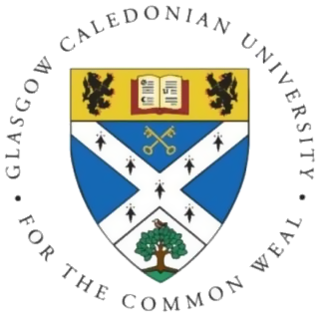
Glasgow Caledonian University, informally GCU, Caledonian or Caley, is a public university in Glasgow, Scotland. It was formed in 1993 by the merger of The Queen's College, Glasgow and Glasgow Polytechnic.

Celtic studies or Celtology is the academic discipline occupied with the study of any sort of cultural output relating to the Celtic-speaking peoples. This ranges from linguistics, literature and art history, archaeology and history, the focus lying on the study of the various Celtic languages, living and extinct. The primary areas of focus are the six Celtic languages currently in use: Irish, Scottish Gaelic, Manx, Welsh, Cornish, and Breton.
David Bruce Audretsch is an American economist. He is a distinguished professor at the School of Public and Environmental Affairs (SPEA) at Indiana University and also serves as director of the SPEA International Office, Ameritech Chair of Economic Development, and director of SPEA's Institute for Development Strategies (IDS). He is co-founder and co-editor of Small Business Economics: An Entrepreneurship Journal, and also works as a consultant to the United Nations, the World Bank, the OECD, the EU Commission, and the U.S. Department of State. He was the Director of the Entrepreneurship, Growth and Public Policy Group at the Max Planck Institute of Economics in Germany from 2003 to 2009. Since 2020, he also serves as a Distinguished Professor in the Department of Innovation Management and Entrepreneurship at the University of Klagenfurt.

The history of education in Scotland in its modern sense of organised and institutional learning, began in the Middle Ages, when Church choir schools and grammar schools began educating boys. By the end of the 15th century schools were also being organised for girls and universities were founded at St Andrews, Glasgow and Aberdeen. Education was encouraged by the Education Act 1496, which made it compulsory for the sons of barons and freeholders of substance to attend the grammar schools, which in turn helped increase literacy among the upper classes.
Sir William Spens, CBE was a Scottish educationalist, academic and Master of Corpus Christi College, Cambridge.
The Queen's Award for Enterprise Promotion is one of the Queen's Awards for Enterprise, and is awarded annually to people who play an outstanding role in promoting the growth of business enterprise and/or entrepreneurial skills in other people. It is bestowed by the Queen on the advice of the Prime Minister of the United Kingdom. Recipients receive an engraved crystal glass commemorative item, a Grant of Appointment and are invited to a reception at Buckingham Palace.
For example, people who:
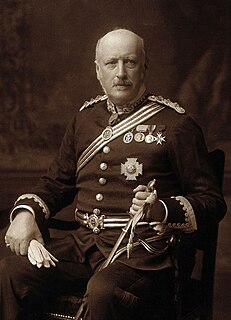
Colonel Sir George Thomas Beatson was a British physician. He was a pioneer in the field of oncology, developing a new treatment for breast cancer, and has been called "the father of endocrine ablation in cancer management." The Beatson West of Scotland Cancer Centre and the Cancer Research UK Beatson Institute are named for him.
Robert William Davies, better known as R. W. Davies or Bob Davies, was a British historian, writer and professor of Soviet Economic Studies at the University of Birmingham. Obtaining his PhD in 1954, Davies was promoted to full professor and made chair of the Centre for Russian and East European Studies (CREES) at the University of Birmingham in 1965. He retired from active teaching in 1989.

Scotland in the modern era, from the end of the Jacobite risings and beginnings of industrialisation in the 18th century to the present day, has played a major part in the economic, military and political history of the United Kingdom, British Empire and Europe, while recurring issues over the status of Scotland, its status and identity have dominated political debate.
The Association of Business Historians is a British learned society focused on business history and the history of companies concerned with "The study of all aspects of the historical development of enterprise, businesses and business activity generally and their inter-relationship with the social, cultural, economic and political environment."

Thy Industrial Revolution in Scotland was the transition to new manufacturing processes and economic expansion between the mid-eighteenth century and the late nineteenth century. By the start of the eighteenth century, a political union between Scotland and England became politically and economically attractive, promising to open up the much larger markets of England, as well as those of the growing British Empire, resulting in the Treaty of Union of 1707. There was a conscious attempt among the gentry and nobility to improve agriculture in Scotland. New crops were introduced and enclosures began to displace the run rig system and free pasture. The economic benefits of union were very slow to appear, some progress was visible, such as the sales of linen and cattle to England, the cash flows from military service, and the tobacco trade that was dominated by Glasgow after 1740. Merchants who profited from the American trade began investing in leather, textiles, iron, coal, sugar, rope, sailcloth, glass-works, breweries, and soap-works, setting the foundations for the city's emergence as a leading industrial center after 1815.

Scottish education in the nineteenth century concerns all forms of education, including schools, universities and informal instruction, in Scotland in the nineteenth century. By the late seventeenth century there was a largely complete system of parish schools, but it was undermined by the Industrial Revolution and rapid urbanisation. The Church of Scotland, the Free Church of Scotland and the Catholic church embarked on programmes of school building to fill in the gaps in provision, creating a fragmented system. Attempts to supplement the parish system included Sunday schools, mission schools, ragged schools, Bible societies and improvement classes. Scots played a major part in the development of teacher education with figures including William Watson, Thomas Guthrie, Andrew Bell, John Wood and David Stow. Scottish schoolmasters gained a reputation for strictness and frequent use of the tawse. The perceived problems and fragmentation of the Scottish school system led to a process of secularisation, as the state took increasing control. The Education (Scotland) Act 1872 transferred the Kirk and Free Kirk schools to regional School Boards and made some provision for secondary education. In 1890 school fees were abolished, creating a state-funded, national system of compulsory free basic education with common examinations.
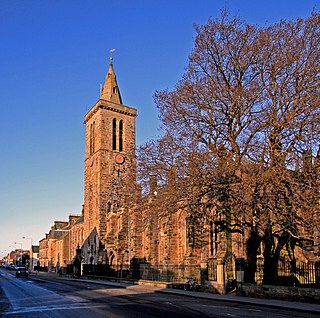
The history of universities in Scotland includes the development of all universities and university colleges in Scotland, between their foundation between the fifteenth century and the present day. Until the fifteenth century, those Scots who wished to attend university had to travel to England, or to the Continent. This situation was transformed by the founding of St John's College, St Andrews in 1418 by Henry Wardlaw, bishop of St. Andrews. St Salvator's College was added to St. Andrews in 1450. The other great bishoprics followed, with the University of Glasgow being founded in 1451 and King's College, Aberdeen in 1495. Initially, these institutions were designed for the training of clerics, but they would increasingly be used by laymen. International contacts helped integrate Scotland into a wider European scholarly world and would be one of the most important ways in which the new ideas of humanism were brought into Scottish intellectual life in the sixteenth century.
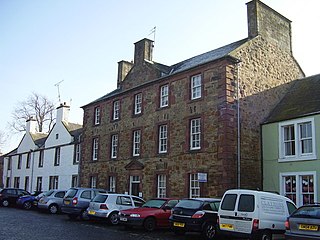
Scottish education in the eighteenth century concerns all forms of education, including schools, universities and informal instruction, in Scotland in the eighteenth century.
The European Business History Association (EBHA) is an Academic association devoted to business history in Europe. It holds annual congresses and a bi-annual doctoral summer school. It is registered as a Scottish charity. Its constitution states its objectives as "to advance the education of the public concerning all aspects of the history of business and management in Europe and in the environment in which they operate and to promote research into all such aspects". Its aim is the organisation of conferences and seminars, the publication of a newsletter and other materials, the encouragement of research in all aspects of business history, and specifically the promotion of collaborative projects based in several European countries such as The Performance of European Business in the 20th Century project per instance. The association was established to enhance inter-European contacts and promote extra-European links among business historians, to encourage the exchange of business history graduate students and to promote teaching and interest in all such aspects.
Jürgen Förster is a German historian who specialises in the history of Nazi Germany and World War II. He is a professor of history at the University of Freiburg, the position he has held since 2005. Förster is a contributor to the seminal work Germany and the Second World War from the Military History Research Office (MGFA).
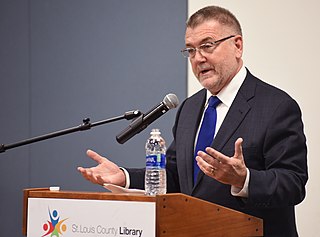
Peter F. Hayes is professor emeritus of history at the Weinberg College of Arts and Sciences, Northwestern University, and chair of the Academic Committee of the United States Holocaust Memorial Museum.
Francis R. Nicosia works as a historian at the University of Vermont with a focus on modern history and Holocaust research.